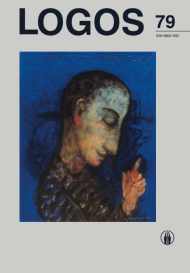Ludwigo Wittgensteino Religijos Filosofijos Vientisumo Problema
The Problem of Coherence of Ludwig Wittgenstein’s Religious Thought
Author(s): Simas ČelutkaSubject(s): Epistemology, Ethics / Practical Philosophy, Philosophy of Religion
Published by: Visuomeninė organizacija »LOGOS«
Keywords: Wittgenstein; religion; mysticism; ethics;
Summary/Abstract: It is common to distinguish two highly distinct phases of Wittgenstein’s philosophizing and consider them as incompatible, even opposing each other. Nonetheless, in this paper I argue that viewed from the perspective of philosophy of religion Wittgenstein’s religious thought is to a greater extent coherent and complementary. Although a few relevant theoretical differences appear during the shift from “earlier” to “later” Wittgenstein, both periods share the same fundamental notions: antirationalism, antinaturalism and the autonomy of religious discourse. The thesis is supported not only by an examination of Tractatus Logico-Philosophicus and Philosophical Investigations; the justification is also based on a closer look at Wittgenstein’s shorter texts that are pertinent for the subject.
Journal: LOGOS - A Journal of Religion, Philosophy, Comparative Cultural Studies and Art
- Issue Year: 2014
- Issue No: 79
- Page Range: 187-199
- Page Count: 13
- Language: Lithuanian

